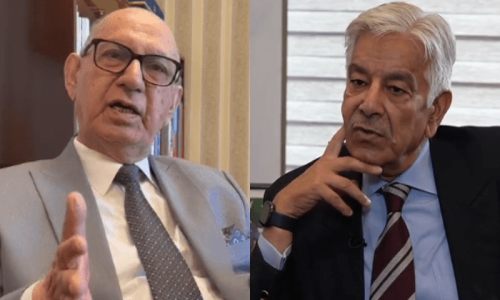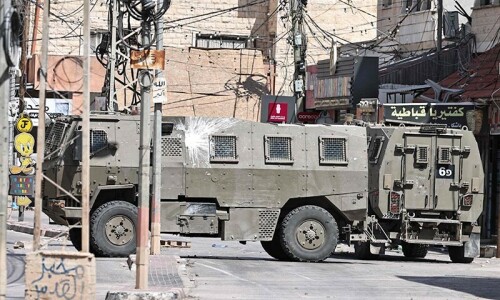ISLAMABAD, April 2: The coalition government is finding it difficult to offer any immediate economic relief to the people because of what is being described as precarious financial position. The matter of relief has now been left for the next budget.
Sources told Dawn on Tuesday that the government had been informed by the finance ministry that 2007-8 would be a challenging year for national economy.
The year has witnessed heightened political activity, a disturbed law and order situation, rising food inflation, an extraordinary increase in global oil prices and the spillover from the United States sub-prime issues and credit crunch.
“This year will also witness a new government taking charge of the affairs of the state. Maintaining financial discipline in such an extraordinary environment will indeed be a difficult task for the government,” says the ministry’s report.
At the same time, there is no alternative to financial discipline for sustaining the current growth momentum. There was need for decisions to achieve key fiscal targets and the government should not hesitate in sustaining growth momentum in a stable macroeconomic environment, the ministry advised.
It said a sound fiscal policy was essential for preventing macroeconomic imbalances and realising full growth potential. Every effort should be made to continue improving the fiscal balance, notwithstanding the pressure generated by the extraordinary increase in the international price of oil.
“Going forward, Pakistan will have to allocate substantially large resources for strengthening the country’s physical and human infrastructure to sustain growth momentum,” it said.
The challenge would be to significantly enhance the tax-to-GDP ratio to generate the resources required to finance the development of both human and physical infrastructure, it said.
The ministry said the government would have to make efforts to extend the tax base to untaxed and under-taxed sectors. The broadening of the tax base would enable the government to reduce marginal tax rates which would help stimulate investment and production and promote voluntary tax compliance. It would also ensure fair distribution of the tax burden among various sectors of the economy.
“The overall services sector, including wholesale and retail trade, as well as agriculture are potential candidates for broadening the tax base,” the report said.
The government last month withdrew Rs50 billion from the current Rs335 billion federal Public Sector Development Programme (PSDP) to manage its day-to-day affairs.
Except for strategically important development projects, including Mangla Dam raising and Chashma-2 nuclear power plant, no funding will be available for other projects during the remaining three months of the financial year.















































Dear visitor, the comments section is undergoing an overhaul and will return soon.